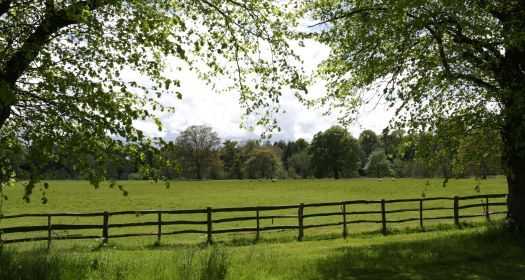
5 May 2023
Analysis by the WWF shows the government's plans to reduce greenhouse gas emissions from agriculture and land use fall short of its net zero strategy. The WWF notes that alongside improved emission reductions from tree planting and peatland restoration, the government needs to support nature-friendly, low carbon farming to decarbonise effectively.
As the local elections have been taking place on Thursday, a key issue for council candidates is river pollution. 62% of rivers in England have been failing environmental standards due to intensive agricultural practices, with fertiliser, pesticides and poor soil health polluting rivers.
Defra has stated that it will not implement its commitment to publish a horticulture strategy. This has caused concern in the sector, with growers facing increasing production costs and a lack of access to labor, leading to food shortages. The strategy was hoped to support sustainable fruit and vegetable production and consumption that improves soil health.
Sustain reports that five major UK livestock companies have seen increased revenue and paid large bonuses to their directors, despite their intensive farming practices causing significant harm to UK rivers through the release of toxic pollutants. The increased pollution is due to a growing number of indoor animal farming units producing more slurry effluent than soils and rivers can cope with.
Plans to create a new woodland in a council-owned field in Romiley, Greater Manchester, have been cancelled after it was discovered that soil was contaminated by sewage. The council said there were too many risks to human health, including workers having to dig into raw sewage to plant trees, and there were worries that the contaminants would prevent the trees from growing.
The EU has approved the Dutch government's plans to reduce nitrogen pollution by purchasing and shutting down farms emitting significant amounts of nitrogen. The Dutch government wants to cut pollutants, including nitrogen oxide and ammonia, by 50% nationwide by 2030. Nitrogen pollution is often caused by emissions from manure and fertilisers spread on soils.
The Biden administration has pledged to defend funding for climate-smart farming in the $430 billion US Inflation Reduction Act (IRA) during negotiations for the next farm bill. The IRA includes funds to provide farmers with technical and financial assistance to implement practices like planting cover crops or reducing soil tillage.
A recent report by the Food and Land Use Organisation (FOLU) highlighted that while numerous companies seek to support regenerative agriculture, varying interpretations of regenerative agriculture have exposed it to act as greenwashing. FOLU has called for outcomes-based measures to ensure transparency, while ensuring it does improve soil health.
Richard Young at the Sustainable Food Trust, examines whether it is sustainable to plough or use glyphosate to grow crops. He considers different uses of the plough and glyphosate, as the new Sustainable Farming Incentive scheme (SFI) encourages their use in min-till or no-till farming.
Ahead of the International Compost Awareness Week (ICAW), the International Compost Alliance has highlighted that this year the week will be focused on soil health. The annual week will promote the benefits of composting for healthier soil and food. Communities, organizations, and individuals are encouraged to participate in various activities.
Scientists warn of the threat posed by fast-rising fungal attacks on major crops, which could lead to a global food supply crisis. Fungi are already the biggest destroyer of crops and are highly adaptable, developing resistance to fungicides. The climate-induced rising temperatures are expected to worsen the spread of fungal infections, with many spores residing in soils.